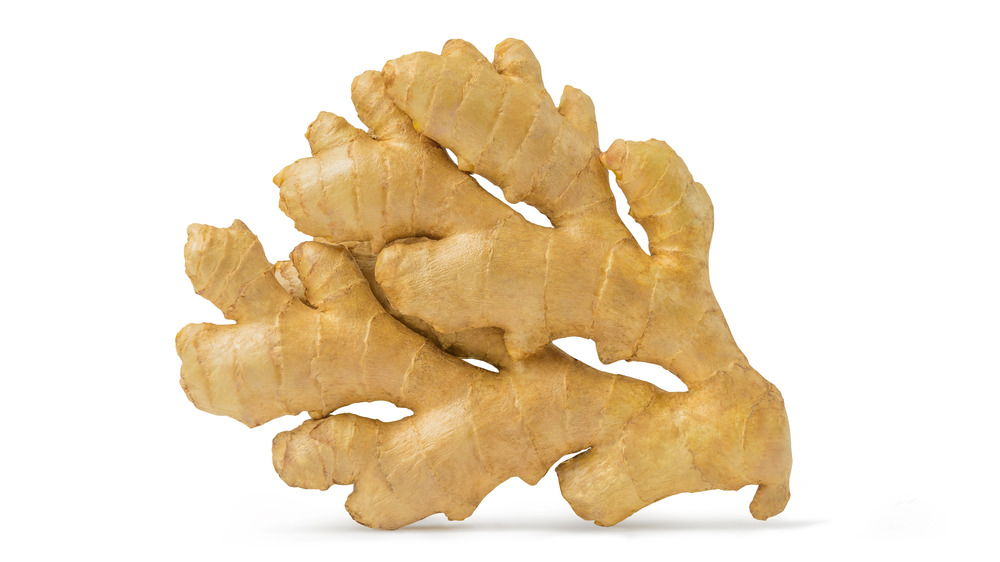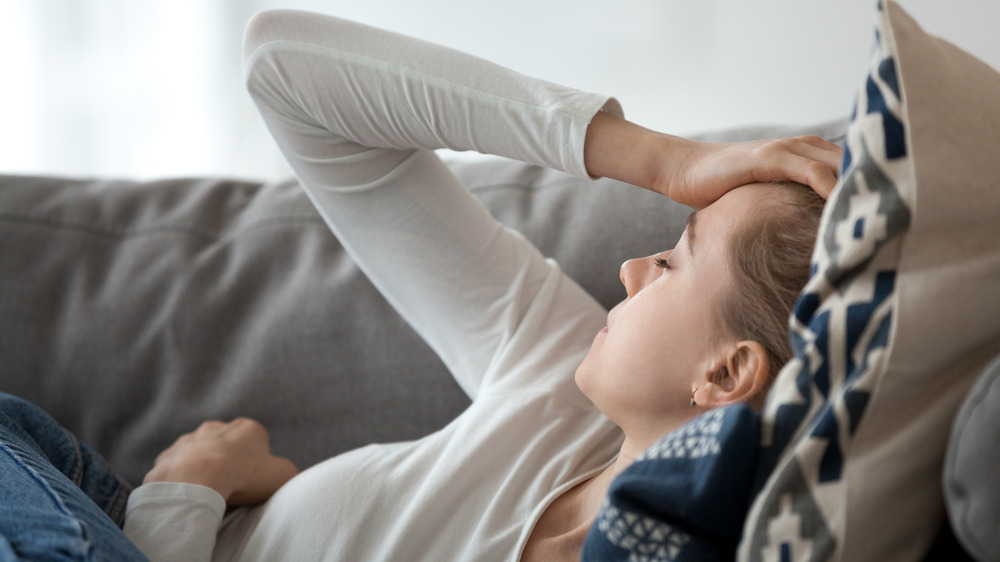Why You Should Try Using Ginger For Your Headache
Ginger has many benefits, including helping with an upset stomach, reducing cold and flu symptoms, helping with motion sickness symptoms, and even boosting metabolism. You can even take a bath with ginger, which can help with inflammation, circulation, digestion, and metabolism.
What can't this little plant root do? As if it wasn't amazing enough, four different studies have proven ginger works for migraine and headache relief.
Patients seeking treatment at a hospital during a migraine attack were given 400 milligrams of ginger extract along with ketoprofen, a pain medication. The 60 patients were split into two groups — one given ginger extract and one a placebo. The patients given ginger extract reported better pain reduction than the placebo group even though both groups were also given ketoprofen (via a 2018 study).
A ginger powder supplement worked just as well as Sumatriptan, a migraine prescription medication, according to a 2014 study. Researchers studied 100 patients with migraines and gave one group Sumatriptan and the other group the ginger supplement. One month later, both groups reported similar results.
This 2017 study found that 500 milligrams of ginger rhizome powder worked just as well as ibuprofen for migraines. These patients had outpatient surgeries to remove an impacted molar.
One more — a 2011 study found that a gel form of ginger and feverfew given under the tongue helped reduce migraine symptoms. Patients took the gel at the onset of a migraine.
How to use ginger for headaches
The studies have shown that ginger powder supplements, ginger gel with feverfew, and ginger extract have worked for headaches, but you can also use fresh ginger. There are also prepared ginger teas, essential oils, and lozenges. Although those forms of ginger haven't been studied for headaches, they could help.
Serena Goldstein, a naturopathic doctor, told Well+Good you can apply a ginger paste to the middle of your forehead or drink some fresh ginger tea for relief from headache or migraine symptoms. You can also make a ginger shot with a little bit of cold water and some ginger powder.
To make fresh ginger tea, you'll need a quarter cup of grated ginger and four cups of boiling water. Add the water and ginger to a teapot and let steep for about four minutes. If you don't have a teapot, you can keep the boiling water in the pot, add the grated ginger, and put the lid on the pot so it can steep. Strain into a mug, save some for later, and enjoy with a bit of honey if you'd like (via Martha Stewart).
If you'd prefer a ginger supplement, you can likely find some at your local pharmacy. The Novera Headache Center recommends taking 550 milligrams at the onset of a headache or migraine.


